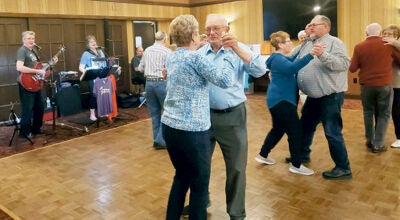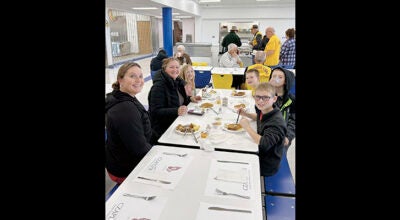U.S. Bank analyst sees slow economic slog picking up
Published 5:09 pm Saturday, July 5, 2014
By David Fondler, Pioneer Press
The main U.S. economic story over the past few years has been about recovery.
Whether it’s the markets, housing or jobs, all reports of incremental economic movement are viewed through the frame of the so-called Great Recession — where we are now versus where we were then, before the housing bubble burst, the markets tanked and everything changed.
“Right now the U.S. economy appears to be performing, on a relative basis, fairly well, especially compared with Europe and other parts of the world,” said Dan Heckman, a senior investment strategist with Minneapolis-based U.S. Bank, in an interview. “Right now we’re the best house in a bad neighborhood.”
Heckman cited the reasons for the slow pace of the recovery, and expressed guarded optimism for the year to come. His answers have been edited for context and clarity.
If the economy is doing “fairly well,” what is preventing it from doing great?
“The regulatory headwinds are one area that it is crimping economic growth. And that is offsetting some of the easy monetary policy that’s going on.
“I think this low interest rate policy has a benefit but it also has some negatives for people who are on fixed incomes. You have people who are refinancing and loosening up cash flows, whether it’s corporations, or people with high credit scores. But there is another subset of the population that is being somewhat penalized. Someone who was earning 4 percent on a government bond several years ago, now they’re earning 1 percent, that’s a 75 percent haircut in their incomes. That has been a dramatic change over the last 4-5 years.
“And I’m not sure that low interest rates through the Fed policy is really solving the structural issues that we have in unemployment in this country. We feel it’s more of a skills gap situation, that is, making sure that people are getting the right type of education and training needed to fill the high-skilled jobs that are available out there.”
On regulation, isn’t lax regulation during the previous decade cited as one of the causes of the crisis?
“We need the right type of regulation. Sometimes the pendulum swings too far in either direction, and I think there was not so much a lack of regulation but a lack of oversight, in combination with perhaps not the right types of regulation.
“Now I think we’re swinging in the other direction, and there may be some good intentions, but there also are some unintended consequences.”
Do you think the Fed should be more aggressive at this point?
“I think stepping on the accelerator, in terms of getting out of the asset purchase program, I’m not sure will be all that beneficial. They’re already down to $35 billion in monthly purchases, and we suspect they’ll be out of the bond buying business prior to the conclusion of 2014.
“I think allowing institutions and individuals to adjust, and doing what they’re doing on a gradual basis in terms of exiting the quantitative easing and asset purchase program is the right pathway to go. And once they get to the point when they feel comfortable raising rates, I think the path would be baby steps, a quarter of a point rise at a time, allowing individuals and other participants to adjust accordingly.”
You mentioned a “skills gap” that’s crimping hiring, yet we’re seeing a lot of skilled workers on the sidelines. What’s your take on the labor market?
“We are starting to see the labor market tighten up a bit. The problem is, there’s still a lot of excess slack in the labor pool. And while folks say, correctly, that we’ve recouped all the jobs we’ve lost during the Great Recession, the problem is they’re not really accounting for demographic growth during the same time period. So while we have recouped, we haven’t kept up with population growth.
“A lot of this lower wage employment, from our checks, is drying up. (Employers) are having a more difficult time finding people that have to accept a lower wage paying job. And we have an aging population and every day we have an increasing number of people retiring out of high-skill high-wage jobs, and those need to be filled and replaced.
“But we have had a large portion of the populace that have great skills and have just been unable to find or land a job. In some cases, people may need to change a career or make a career move.
“Also, we had a severe real estate crisis, and I think another impediment is people were stuck in a home that they couldn’t sell. We’re seeing that loosen up with improving real estate markets and I’m hoping that mobility will allow people to move to geographic locations that are experiencing growth, and find better paying jobs.
“I think as this cycles through time here over the next year to two years, we’re going to see some of this excess slack get depleted.”
What is your outlook through the rest of the year and beyond?
“I think over the next year we’re going to see some greater progress, on some of these issues. Unfortunately, we’re faced with a fall election and I think we still have a bit of gridlock and inaction because of that. I think once we get past this election cycle in November, it is our optimistic viewpoint that some of these issues are going to get addressed in a more productive and quicker fashion.
“The wild card here is that we have a lot geopolitical issues around the world: Middle East, Ukraine, Russia. We’re concerned about the price of oil going up incrementally from this point, and that becomes somewhat of a tipping point for the U.S. economy.
“So we think unfortunately we’re going to be in a slow growth environment for at least another quarter or two in 2014. But we see the possibility of there being a much broader outlook as we head into the end of the year and into 2015.”



